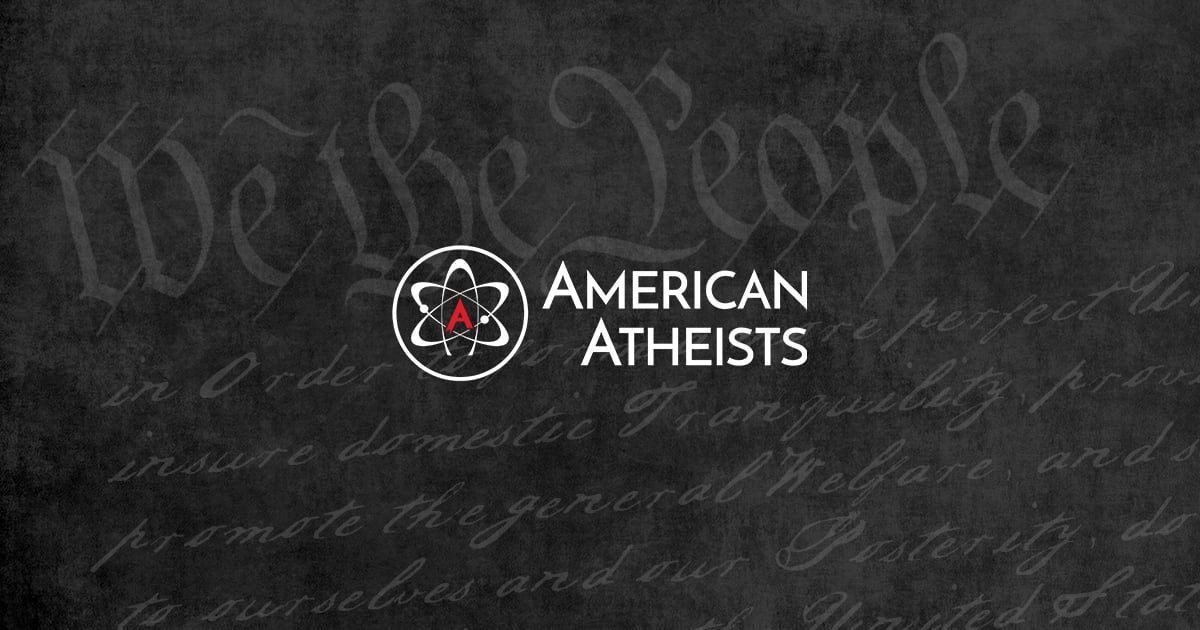Alter2Ego
Verified User
Atheism is Religion according to the 1961 Torcaso v. Watkins case that was affirmed by the U.S. Supreme Court--the highest court in the land--where court rulings become national law. In spite of the many court rulings since 1961 that Atheism is Religion, atheists insist on fooling themselves by claiming they are not religious. They attempt to take the higher ground by claiming Christians are mental midgets for believing in a "non-existent sky gawd."
Atheist religionists often refer to the Judeo-Christian Bible as a book of fairytales. At one website where I have debated, the Bible was referred to by atheists as the "BuyBull."
In most of my conversations with atheists at various websites, their usual accusation is that because of the belief in God, theists have committed all sorts of human rights violations in the name of "cultish religions." According to the many atheists I have debated at other websites, it is the belief in God that has caused people to commit the various atrocities common to sinful mankind. Remove religion--the atheists frequently argue--and the world will be a better place. This latter conclusion is mortally flawed for the following reasons:
1. Atheism is itself a religion.
2. Atheists have committed human rights violations en masse throughout history. For instance, Joseph Stalin--the atheist--ordered the deaths of between 40 million to 62 million people (at least 20 million of whom were everyday Soviet civilians). Compare that to the 9 million or so murdered by Adolph Hitler, the Roman Catholic, who merely claimed he was a Christian.
In reality, the problem is not the Bible or God. The problem is false religions that have failed to teach the masses Biblical truths. Blaming God for the crimes of people whose behavior he himself rejects is an attempt at passing the buck.
"See! This only I have found, that the true God made mankind upright, but THEY THEMSELVES have sought out many plans." (Ecclesiastes 7:29)
DISCUSSION POINTS:
1. Considering that atheists have themselves committed human rights violations under the banner of non-belief in a supernatural God or gods, why can one argue that "belief in god" is not the actual reason behind crimes against humanity?
2. Atheists routinely argue they do not belong to a religion. According to them, non-belief in God is proof positive that they are not religious. Do you agree with the atheists' position? Why so or why not?
3. Based upon numerous court rulings that Atheism is Religion, it is obvious that belief in a supernatural God or gods is not a requirement for being considered part of a religion. What arguments can you present along this line?
Atheist religionists often refer to the Judeo-Christian Bible as a book of fairytales. At one website where I have debated, the Bible was referred to by atheists as the "BuyBull."
In most of my conversations with atheists at various websites, their usual accusation is that because of the belief in God, theists have committed all sorts of human rights violations in the name of "cultish religions." According to the many atheists I have debated at other websites, it is the belief in God that has caused people to commit the various atrocities common to sinful mankind. Remove religion--the atheists frequently argue--and the world will be a better place. This latter conclusion is mortally flawed for the following reasons:
1. Atheism is itself a religion.
2. Atheists have committed human rights violations en masse throughout history. For instance, Joseph Stalin--the atheist--ordered the deaths of between 40 million to 62 million people (at least 20 million of whom were everyday Soviet civilians). Compare that to the 9 million or so murdered by Adolph Hitler, the Roman Catholic, who merely claimed he was a Christian.
In reality, the problem is not the Bible or God. The problem is false religions that have failed to teach the masses Biblical truths. Blaming God for the crimes of people whose behavior he himself rejects is an attempt at passing the buck.
"See! This only I have found, that the true God made mankind upright, but THEY THEMSELVES have sought out many plans." (Ecclesiastes 7:29)
DISCUSSION POINTS:
1. Considering that atheists have themselves committed human rights violations under the banner of non-belief in a supernatural God or gods, why can one argue that "belief in god" is not the actual reason behind crimes against humanity?
2. Atheists routinely argue they do not belong to a religion. According to them, non-belief in God is proof positive that they are not religious. Do you agree with the atheists' position? Why so or why not?
3. Based upon numerous court rulings that Atheism is Religion, it is obvious that belief in a supernatural God or gods is not a requirement for being considered part of a religion. What arguments can you present along this line?
Last edited:




